|
Good morning!
We're so glad you decided to join us today!
When we meet in person, we take time to share our joys and concerns. Consider the last week, and any prayer requests you may have. If you have any prayer requests to share, you can add them as a comment to this post. When you are ready, use the prayer below (source) to get started.
Dear Father, God of the living,
Thank you that Christ's revelation of himself within my soul as Lord of my life and as the living Spirit of truth and holiness testifies that he is not dead but alive forevermore. Thank you that he lives in my heart. By your grace, and by my faith in what you did, I am what I am. The resurrection is preached and I believe it. Thank you, Father! Thank you that I don't have to believe that death ends it all either for Jesus or for me! In the name of Jesus I come, thanking you for your resurrection power and asking that I may live so as to always have hope of sharing in it. Amen.
This week's lesson is on 1 Corinthians 15:20-28.
Lesson Context
The book of 1 Corinthians is a letter written by Paul to the church in the city of Corinth. The church there had major problems, and the letter was meant to help the people understand. This text comes from the next to last section of the book, where Paul discusses the resurrection. Our book says that God will raise the dead so that they are alive as a unity of body and spirit. They will be in fellowship with those who are still alive at Christ's second coming. This will be the ultimate victory of God. Some members of the church in Corinth did not believe the idea that God would raise the dead. This may have been due to pagan Greek philosophy, which viewed the body as a prison from which one's spirit desired to escape. Paul argued that God does raise the dead because God raised Christ from the dead. He recounted the many people who saw Jesus after his resurrection, alive in his body that had been dead and entombed. He considered himself the last of these witnesses.
Guaranteed Victory
For ancient Israel, the day of firstfruits, or the Festival of Weeks (for today's Jewish people, Shavuot), involved a sacrifice of the produce of the land. This was to express that all that was harvested came from God and was dedicated to God. With this offering, the faithful pledged to God not just this one offering but the entirety of their harvest. Paul says that Christ is the firstfruits, which God has provided. What was begun with Christ's resurrection will be completed with the resurrection of God's people. Christ's resurrection tells us that God is not finished. We have much to look forward to. Paul puts Christ's resurrection within the context of the entire biblical story. God intended to sustain people's lives as they depended on him. But people rebelled, and separated humans from God's sustaining power. Humanity brought death upon itself, both the loss of physical life and the ruin of God's goodness in our lives. Resurrection reverses all of this.
Plan for Victory
Paul offers a sequence of events for God's plan, though not a timeline. First, Christ was raised from the dead on the third day after his crucifixion. Next, those who belong to him. This could refer to the dead in Christ who are raised when he comes, those still alive when Christ returns, or both. Then, the present age, when sin and evil seem to prevail, will end. Christ's return is not something for the faithful to fear. It means resurrection life. It means the defeat of evil in all its manifestations. It means the end of suffering. It means joy and peace. The last enemy to be destroyed is death. God pronounced death as the punishment for sin. The victory of God means the end of death. God destroys death by raising his people from the dead, uniting their spirits with resurrected bodies, and bringing them into eternal, unbroken fellowship with God and with one another.
Total Victory
All of Christ's enemies will be trodden under foot. Everything is subject to the Christ with one exception: God the Father, the one who brings the enemies under the king's authority. When the plan has been completed, the Son will willingly subject himself to the Father. God becomes all in all.
Conclusion
A Christian's mind often goes to the promise of God that death is followed by life with God in heaven. That promise is real, true, important, and a real comfort as we consider our mortality. But today's passage reminds us that there is even more to look forward to. Biblical scholar and professor N.T. Wright says life after death is followed by "life after life after death." Raised from the dead, God's people are made whole. The life to come will bring us together with all of God's people from across the ages. We can only imagine what God has in store for us.
Prayer
Great God, your ways are far above our ways. Your promises to us are more than we can imagine. May we live in the light of your promised kingdom. We look forward to seeing the promise of resurrection fulfilled. In Jesus' name we pray. Amen.
Questions for Discussion
Benediction
This week's benediction is from the King James Version.
Next week, we start the fall quarter.
0 Comments
Good morning!
We're so glad you decided to join us today!
When we meet in person, we take some time to share about our last week. This includes our joys and concerns. If you have any prayer requests you would like to share, you can add them as a comment on this post. When you are ready, use the prayer below (source) to get started.
Dear Father,
Help me to live according to your Holy Scriptures. That is why I pray to you in their very words. I want to be conformed to your will, for you will what is best for me. Help me not to be puffed up against my brothers and sisters in Christ. For who sees any difference in me. We all have been freely justified by your grace, forgiven of our sins. What have I that I have not been given? I cannot boast of anything as if it were not a gift. Whatever I am or have, Father, you have given. I would not be addressing this prayer to you if you had not called me to be your servant, your child, and your warrior in prayer. Thank you for calling me. Thank you for all your gifts. You are so gracious, so kind, so bountiful, so wonderful. My God, let me walk humbly with you all my days. In the name of Jesus, who calls us to his own kingdom and glory. Amen.
This week's lesson is on 1 Corinthians 4:1-6, 17-21.
Paul’s language towards the Corinthians is sharply and appropriately judgmental. Paul founded the church in Corinth. A few years after leaving the church, Paul heard some disturbing reports about the church. They were full of pride and were excusing sexual immorality. Spiritual gifts were being used improperly, and there was rampant misunderstanding of key Christian doctrines. The apostle Paul wrote his first letter to the Corinthians in an attempt to restore the Corinthian church to its foundation—Jesus Christ.
The church was plagued by divisions. The believers in Corinth were dividing into groups loyal to certain spiritual leaders. Paul exhorted the Corinthian believers to be united because of devotion to Christ. Many in the church were essentially approving of an immoral relationship. Paul commanded them to expel the wicked man from the church. The Corinthian believers were taking each other to court. Paul taught the Corinthians that it would be better to be taken advantage of than to damage their Christian testimony.
Prayer
God, we come to you in repentance of the arrogance that we all have been guilty of at times. May we abandon our focus on our supposed entitlements and focus instead on the entitlements Jesus voluntarily gave up so that we might live with him eternally. In his name we pray. Amen!
Thought to Remember
With God as our judge, the church lives in humble fellowship.
Benediction
This week's benediction is from the New Living Translation.
Next week's lesson will be on 1 Corinthians 15:20-28.
Good morning!
We're so glad you decided to join us today!
We are not meeting in person for Sunday School today. Instead, we are having worship at 10 am at the Washington County Fair.
We will see you next week, in person, for Sunday School!
When we meet in person, we take time to share joys and concerns. Consider your last couple of weeks, and the upcoming week. If you have any prayer requests to share, please add a comment on this post. When you are ready, use the prayer below (source) to begin.
Most Merciful God, we join our voices in this prayer of confession because we realize that we are united with each other in our own sinfulness. We all sin in ways that are unique to us as individuals. We say and do things that go against Your will for our lives. Forgive us for considering others' sins worse than our own. Forgive us for being so quick to recognize the sin in others, yet slow to see it in ourselves. Grant us the humility of spirit and the gladness of heart that comes from knowing that Jesus died to take away the sins of the world. Touch our lives with Your healing grace and create in us clean hearts. We pray these things in the Name of Jesus Chris, our Savior. Amen
This week's lesson is on Romans 14:10-23.
Have you ever had a day to do just what you wanted, only to feel let down afterward? Maybe it was a day off of work. Maybe friends gave you a break from your normal duties. Somehow, we often experience disappointment at the end of such times.
Why does that happen so often? Perhaps it is, to some extent, because we long to be part of something bigger than ourselves. “Me time” sounds great, but God has put in us a desire that our lives matter for others. I had so much “Me time” during the pandemic that I knew I needed to be a part of something else. The church is too often (because even once is too often!) the place where people seem most devoted to their own preferences. Churches have become infamous for the pettiness of their arguments over matters of opinion. We all grieve the fact, but it is likely that we all have been part of the problem at times. Today's lesson will be the uncomfortable mirror in which we see ourselves in this regard. Our text comes from Paul's letter to the Romans. The letter addresses a church divided between Jewish and non-Jewish (Gentiles) followers of Jesus. While we cannot know the exact circumstances, it appears to that each group looked down on the other for the way it practiced life in God's kingdom. Paul wrote this letter to show each group that they belong to God's kingdom on the same terms: faith in Jesus to God's good news about him. So Paul says “first to the Jew, then to the Gentile” that each group has the same status. All have sinned, both Jews and Gentiles. Paul's addressees belong to God's kingdom not by observances of the Law of Moses, which defined the Jewish people . Rather, they belong by faith in Jesus, who died that all might live eternally. This equality of status must be practiced. Jews were accustomed to keeping the laws of clean and unclean laid out in the Law of Moses. In a city like Rome, finding meat that was ceremonially clean was probably difficult. Add to that the fact that much meat had been sacrificed to pagan idols, and it appears that many Jews in Rome simply given up meat altogether. Meanwhile, Christians from a Gentile background had been brought into God's kingdom by their faith in Jesus, being formerly excluded because they did not belong to the people of Israel. They had never been subjected to the laws of clean and unclean. For Jewish followers of Jesus, dietary restrictions had always been a sign of devotion to God. But for Gentile followers of Jesus', these rules seemed strange and unnecessary. Whose rules should prevail? Both Jews and Gentiles are guilty of sin but that both can be restored to God's kingdom by expressing faith in Jesus. No Christians regardless of background identity, can judge another status on other criteria. To do so over foods is most unfitting for a follower of Jesus. There are two reasons for not passing judgment on others. First, if any judging is to be done with regard to practices of dietary choices, that will be God's prerogative, not ours. Second, we will be called to account on the last day for all judgments we formulate. God alone is Judge. Now through Jesus' death and resurrection, God had ended the deeper exile of sin and has made salvation available to all nations. As a result, no human group or category has a privilege over another. Every knee will bow, and every tongue will acknowledge God as ultimate king. Judging fellow believers is to give way to caring for them. Paul uses figures of speech to describe such caring; a stumbling block is something in a roadway that can makes someone trip, or an obstacle is something that blocks a path or causes a misstep. Paul reaffirms that there is no difference between clean and unclean foods. This reflect what the Lord Jesus declared; purity is not about food but a person's inner character, Israel's rules regarding clean and unclean food were always intended by God not as definitions of right and wrong behavior for all people, but as cultural boundaries that defined Israel as a distinct nation. Good and evil have always been about our inner dispositions that drive our actions. Paul states that if another Christian believes that a food is unclean then we should not partake so we do not become a stumbling block to them. Rules and practices regardless food are among the most obvious ways that group of people mark their differences from other groups. Food preferences are central to a people's culture. Even apart from Israel rules of clean and unclean, those rules were important to the Israelite because they were observed constantly. But Paul reminds us that God's kingdom is not merely about what is easily seen. Food is nothing compared to what God has done in Christ, what now defines his people as subjects of his kingdom. God's peace is not just a cessation of strife. It is harmony in loving, caring relationships. The gospel calls us not just to get along but to work for one another benefit. Joy flows from the abiding sense of confidence that God is making things right as he establishes his kingdom. Peace and joy are among the fruit of the Holy Spirit. Deferring to others' concerns even gains human approval. In social structures of the first century AD, Jewish Christians stood apart from the larger Jewish communities because of their acceptance of Gentiles as God's people. Gentile Christians, for their part, had abandoned the pagan worship that required loyalty to the Roman Empire. If these two groups became known for their arguments over food, their credibility would suffer all the more. But if they could demonstrate love, their example could shine. When the church fights, a vile reputation results. When its members love as Christ did, we become the salt and the light of the world. The peace of God's kingdom is a gift of God. But putting peace into practice is not automatic. They must apply diligent effort to make sure that everyone in Christ's body is respected, included and loved. Conflicts will be necessary when confronting doctrinal defection, moral defection or divisiveness. But such conflict should serve the greater good in protecting the integrity of the church.
Conclusion
Peace, Not Conflict Up to the point of today's lesson text in Romans, Paul had spent many chapters reminding Christians in Rome that no group had any preference before God. Faith in Jesus-not being in a certain biological lineage or doing better works-is what brings sinners of every ethnicity into God's kingdom. United with him in death and resurrection, they are now dead to sin. They live a new life, empowered by God's Spirit, transformed to love and serve one another. But can we bring that truth to shared meals? Can we exercise our faith in such a way as to defer to one another as we learn to use our freedom for the benefit of others, not ourselves? The concern of those with strong faith should be for the welfare of those with weaker faith toward greater understanding. Of such love, grace, patience, and edification is the kingdom of God. Prayer Gracious Father, we thank you for our freedom in Christ. Lead us to use that freedom to build up others, never to tear down. May we be instruments of your peace in the name of your Son. Amen
Questions for discussion
Benediction
This week's benediction is from the Tree of Life Version.
Next week's lesson will be on 1 Corinthians 4:1-6, 17-21. We will be back in person then.
Good morning!
We're so glad you decided to join us today!
This week, we are not meeting in person for Sunday School. Instead, we will be enjoying the children's Vacation Bible School Program.
Next week, we will be at the Washington County Fair for worship at 10 am. We will not be meeting for Sunday School.
When we meet in person, we share our joys and concerns with each other. If you have prayer requests to share, you can add them to the comments on this post. When you are ready, use this prayer to get started.
God, our Father, we often come to you with requests for things that we want in our personal life, for help in difficult times or for health and healing. But sometimes our desires are simply for worldly success, for comfort, for more things and more money.
This morning we ask that, through your Spirit, you would make us more like you — more loving, more caring, more patient, more compassionate, more joyful even in difficult times. Help us to bear fruit so that there will be more unity in the church and more Christlike love for all people. In Jesus’s name we pray. Amen.
This week's lesson is on Galatians 5:13-26.
Introduction
Imagine, if you can, being a convert to the Christian faith in the first century. You have come from a world of pagan religion and sacrifices to appease the gods. You have responded to a message of love and forgiveness preached by a man named Paul and built on the life and teachings of Jesus. But Christianity is not entirely new. It comes out of the Jewish faith to which Jesus firmly belonged. Therefore, some Jewish Christians see the faith simply as a continuation of Judaism. They argue that to be a Christian one must obey all of the Jewish laws. Those who came to Christ from pagan backgrounds, they say, must be circumcised and obey the Jewish dietary laws. But even though Paul is a prominent Jewish leader himself, he argues that God has done something in Jesus that completely changes how people of faith can now relate to God. The nature of the controversy indicates that the Galatian church included spiritual brothers and sisters from both Jewish and Gentile backgrounds. These disparate groups had been made into a family by God’s call. That call is the good news that in Jesus, God had come in the flesh, had submitted to death, and rose to new life.
Living in freedom (13-18)
In Jesus, Paul says, God set us free from the requirements of the law. Not only that, but God also set us free from living only for ourselves and our own desires and pleasures. That is not true freedom. That is merely license. Living that way may look like freedom, but ultimately it is just another path to slavery — slavery to sin. Instead, God calls us to the kind of freedom that allows us to love others in truth and sincerity. It’s the kind of love that Jesus showed toward others. It is not contrary to the law because, as Paul says, “the entire law is fulfilled in keeping this one command: ‘Love your neighbor as yourself.’” Despite having different backgrounds, the love for God and the love for others is something that unites all Christians. This, for Paul, is the foundation of the Christian faith. The alternative to this central commandment is to have churches where there is constant bickering and internal divisions. To avoid that, churches might divide into Jewish- and Gentile-based congregations, the lesson suggests. However, that would create divisions as well, and Christ’s church should not be divided. Instead, both groups can admit their different backgrounds while focusing on the love that unites them. How can we live such a life? How can we live together with people who see the faith differently? How can we learn to love and serve others? Christians must turn away from their own selfishness and listen to the leading of the Holy Spirit. God provides that Spirit to each Christian, but we must still be willing to listen and obey. That requires a daily decision to set our self-interest aside and to ask how God’s Spirit is leading us to love other people. The difference between the old way and this new way of life is what Paul describes as living by the flesh or living by the Spirit. Even for Christians, this is a continual struggle.
Rejecting selfishness (19-21)
At this point, Paul offers a list of sins that show just what a difference it makes to live by the flesh. Such unrestrained selfishness leads to sins like sexual immorality, idolatry and witchcraft, hatred, jealously, fits of rage and selfish ambition as well as divisions and envy and finally, drunkenness and orgies. These sins range from personal failings to religious failings. They include failing to live lives that reflect self-sacrificing love and that create more divisions and hostility between people. These sins are common among people outside the church, but Christians who live without the Spirit’s guidance can succumb to them as well. Falling into these practices is not freedom. As we mentioned before, this is license, and when unchecked it reveals that we are not citizens of God’s kingdom and that we have no inheritance in it.
Pursuing Godliness (22-26)
By contrast, Paul now offers a list of attitudes that are reflected in those who live by the Spirit’s guidance. Paul calls them “the fruit of the Spirit,” which is fitting because they are what grows in a Christian life that is cultivated with attention to the Spirit. They are the harvest of daily spiritual attention that allows us to consider others instead of just ourselves. The first of these fruits, of course, is love, but along with it are joy and peace, patience, kindness and goodness toward others. In addition, those guided by the Spirit will be faithful and gentle and self-controlled. Living this way does not come naturally. It requires dying to our old way of thinking and living and continually “crucifying” that old person that vies for control of our thoughts and our actions. This internal battle will never fully go away while we are living, but life in the Spirit will make us more like Christ as we grow in our faith.
Conclusion
Paul begins and ends his vice list with the commonly named pagan vices but devotes most of his attention in the middle to matters of hostility and disunity. He is driving home a point to Galatian church members that need to be heard through the ages: When we divide the body of Christ for self-serving reasons, we serve the flesh. We might tend to minimize such acts by pointing to the blatant evils of the ungodly world around us, but our selfish hostility is just as evil. We paganize ourselves when we refuse to love one another. Do you want a kingdom life, the life that God always intended for God’s people? Then let the Holy Spirit bear his fruit. Prayer Thank you, God, for your incomparable blessing of freedom and life in the Spirit. We rely on the power of your Spirit so that we can be people who reject our Lord’s resurrection. Amen!
Questions for discussion
Benediction
This week's benediction is from the Revised Standard Version.
Next week's lesson will be on Romans 14:10-23.
Good morning!
We're so glad you decided to join us today!
We will not be meeting in person for Sunday School for the next two weeks.
Next week, the VBS program will be held in the sanctuary during the Sunday School hour. The following week, we will be at the fairgrounds at 10 am for the worship service at the fair.
When we meet in person, we take time to share our joys and concerns. Take some time to consider how your last week has been. If you have any prayer requests to share, please add them to this post as a comment. When you are ready, use the prayer below (source) to get started.
God, we’re so grateful to be able to meet here together and be in your presence today.
We know it’s a gift. Help us never lose sight of that. While we’re here together studying Your Word we ask that You’d open our ears and our hearts to whatever it is You are wanting to teach us. Help us to see things through Your eyes and not the lens of our own understanding. We want to know You more, God. Thank you for showing us who You are and helping us understand and walk in Your love. What we learn today we want to act on. Don’t let it become mere head knowledge. Shape our minds, hearts, and actions according to Your word. Show us how to honor you and love others well with what we learn. In Jesus’ name, Amen.
This week's lesson is on Matthew 13:44-52.
Lesson Context
This week, we will be looking at our third lesson on parables. The first two were stories with a beginning, middle, and end. This week, we will be looking at four very brief parables that are found on in the Gospel of Matthew. They include enough detail to make a point while allowing the reader to imagine other details. We might think of these as similar to a more recent phenomenon called flash fiction. A popular example of such fiction is the six word story. "For sale: baby shoes, never worn." Our book talks about reading the New Testament, and bridging the gap between "the two horizons." The first is the historical context in which the New Testament was written. The second is the modern context in which we as readers stand. We need to understand the first horizon in order to deal with the second. In the ancient world, a person's wealth was recognized by them physically possessing something tangible, like livestock, precious metals, or luxury attire. Wealth could be taken. In order to protect things like precious metals, they would be hidden somewhere. In today's society, we might still think of wealth dealing with tangible items. But it also consists of investments, property, stocks, and things that we can't really hold in our hands. Protecting wealth now has more to do with computers: keeping antivirus software and firewalls up to date, not sharing passwords, and being careful about public wi-fi.
Parable 1: Hidden Treasure
In Jesus' time, it would have been a pretty common practice to bury your money. The field the treasure is found in was a farming plot. It was likely secluded away from other people. We get the idea that the man found the treasure alone, with no witnesses. Jewish law at the time stipulated that if a treasure was lifted from the ground, it would belong to the current owner of the field. The man apparently covered the treasure, hiding it again, so there was nothing illegal about his actions. In order to obtain the treasure, the man had to sell all that he had. This was a risk. He was risking that the treasure was worth more than all his personal wealth. He was also risking at the treasure would still be there after he had made the purchase. The point of the parable is that the kingdom of heaven is of superlative inestimable value. But it requires the commitment of everything for those who would be part of it. When we follow Jesus, the rewards are far greater than what we sacrifice.
Parable 2: Costly Pearl
Pearls are made when a foreign object is trapped within an oyster's shell. The oyster secretes a substance, mother of pearl, to make the sharp fragment smooth and nonirritating. Pearls were seen as a very valuable treasure in the ancient world. A business that involves trading in such a valuable commodity has the potential for great risk and great reward. In this parable, the merchant found one pearl of great value. Like the man with the field in the previous parable, the merchant sold everything he had and bought the pearl. This might have meant everything he had with him if he was traveling. It might have meant liquidating property holdings, or other precious gems he already owned. The point of this parable is similar to the previous one. To enter the kingdom of Heaven requires relinquishing our control over everything. Spiritually, we must give up all our ungodly ways and submit fully to the Lord. Materially, nothing we own can be held back if we are fully committed to serve in the kingdom. Everything becomes the Lord's. This involves a shift of mindset from "I own" to "I am a steward." The treasure we receive is worth it!
Parable 3: Good & Bad Fish
In this third parable, Jesus compare the kingdom of heaven to commercial fishing. His listeners would have been familiar with fishing in the Sea of Galilee. Commercial fishing would have been done with a net that was dragged between two boats. Using a net would have been indiscriminate fishing -- it does not differentiate between species of fish likely to be near the surface and those at a depth. A full net would be too heavy to lift into one of the boats. Instead, the bottom would be lifted to trap the fish. Then, the boats would return to shore, beaching the net full of fish. Once on the beach, the fish would be sorted. Good fish would go to market in baskets. Bad fish would be cast aside. Our book points out that the Law of Moses said only fish with fins and scales were considered clean and could be eaten. This meant eels (no scales), various kind of catfish (no scales), and shellfish (neither scales nor fins) unclean. They had no commercial or personal value. This parable connects with last week's lesson about the weeds among the wheat. In both cases, there is a harvest. The harvest is then sorted. The good part of the harvest is kept, and the bad part of the harvest is discarded. It is all about the harvest at the end of the age, the time of final judgment.
Parable 4: Old & New Treasures
A teacher of the law was a literate person who made copies of Scripture by hand and was an expert in the law. This person is depicted as the owner of a house. In this case, the old treasures are the law of Moses, and the new treasure is Jesus. The owner bringing out his treasures is the sharing of scripture.
Conclusion
Jim Elliot was a missionary to Ecuador, where he was killed in 1956. In his journal in 1949, Elliot wrote, "He is no fool who gives what he cannot keep to gain that which he cannot lose." This speaks to the core point of the parables in today's lesson. To remain dedicated to the kingdom of heaven is a treasure far beyond any material possessions. But its cost is a willingness to give up what we have to follow Jesus.
Prayer
Father, grant us the wisdom to recognize the priceless nature of your kingdom! And give us the courage to yield all that we have for it. We pray in the name of Jesus. Amen.
Questions for Discussion
Benediction
This week's benediction is from the New International Version.
Next week's lesson is on Galatians 5:13-26.
Good morning!
We're so glad you decided to join us today!
When we meet in person, we take some time to share about our last week. This includes our joys and concerns. If you have any prayer requests you would like to share, you can add them as a comment on this post. When you are ready, use the prayer below (source) to get started.
Merciful God, you plant each of us like seeds in the same field and together we are nourished and nurtured by the sun. We sway in the wind and are refreshed by the rain. We are blessed by the knowledge that you want us to grow towards what you call us to be.
When we deprive others of that same opportunity, forgive us. When we want to uproot those whom we believe do not belong in our part of the field, forgive us. When we label others as good or bad rather than accept them for who they are, forgive us. When we are reluctant to acknowledge that we ourselves are a mixture of weeds and wheat, forgive us. When we are afraid to look into the fields of our own lives to see what is growing there, forgive us. O God, you know us inside and out, through and through. You search us out and lay your hand upon us. You know what we are going to say even before we speak. So we pray that you will help us to reach out to the uprooted and rejected, the lonely and the outcast, and to develop and grow the good in ourselves, in others, and in the world. This we pray in Jesus’s name. Amen.
This week's lesson is on Matthew 13:24-30, 36-43.
In this parable, Jesus is teaching here about “the kingdom of heaven” in the world. The parable is filled with spiritual significance and truth. Jesus distinctly explains that the field is not the church; it is the world. In Christ’s time, many farmers depended on the quality of their crops. An enemy sowing weeds would have sabotaged a business. The tares in the parable were likely darnel because that weed, until mature, appears as wheat. After harvesting the whole field, the tares could be separated and burned. The wheat would be saved in the barn.
In the explanation, Christ declares that He Himself is the sower. He spreads His redeemed seed, true believers, in the field of the world. Through His grace, these Christians bear the fruit of the Spirit. Their presence on earth is the reason the “kingdom of heaven” is like the field of the world. When Jesus said, “The kingdom of heaven is at hand,” He meant the spiritual realm which exists on earth side by side with the realm of the evil one. When the kingdom of heaven comes to its fruition, heaven will be a reality and there will be no “weeds” among the “wheat.” But for now, both good and bad seeds mature in the world. The enemy is Satan, who tries to destroy Christ’s work by placing false believers and teachers in the world who lead many astray. The world is filled with professing “Christians” whose ungodly actions bring reproach on the name of Christ. But we are not to pursue such people in an effort to destroy them. We don’t know if immature and innocent believers might be injured by our efforts. The difference between true and false believers isn’t always obvious. God alone makes that decision. Christ allows them to remain until His return. At that time, angels will separate the true from false believers.
Prayer
Lord of the harvest, may we be workers in the field of your world. May we be ones who are unwilling to give up on those who seem wicked. May we not despair when evil seems to win the day. We believe the promise that your time of final judgment will allow the righteous to shine as the sun. We look forward to that day faith and anticipation. We pray in the name of Jesus. Amen. Thought to Remember You’re either wheat or weed. There is no in-between.
Benediction
This week's benediction is from the Good News Translation.
Next week's lesson is on Matthew 13:44-52.
Good morning!
We're so glad you decided to join us today!
When we meet in person, we take time to share our joys and concerns. Take some time to consider your past week. If you have prayer requests, please add them as a comment to this post. When you are ready, use the prayer below (source: Pray the Word podcast) to get started.
God, we pray that every day as we hear your word by our spirit, you would soften our hearts and minds and our lives would indeed be fertile.
This week's lesson is on Matthew 13:1-9, 18-23.
Researchers have identified 5 to 9 different teaching methods that Jesus used. One of the methods was parables. One definition of a parable is an earthly story with a heavenly meaning. Another definition is a narrative of some real or imaginary event in nature or in common life which is adaptive to suggest a moral or religious truth. Matthew 13 has been called “the parable chapter” because it has the greatest concentration of parables in the book. It has 16.
When Jesus went out of the house and sat by the lake a large crowd gathered around him that he got into the boat while the people stood at the shore. The acoustic properties of the surface of the water allowed the large crowd to hear Jesus' voice clearly. Jesus began to tell the parable of the Sower. A farmer would have saved his seed from the last crop just for planting. Seeds were a precious commodity and planting day required preparation. The soil had to be tilled to receive the seeds and the soil had to be moist and warm enough to germinate and begin to grow. The crowd had this life experience to relate to. No matter how experienced the farmer sowing seeds from hand could not be perfect. Some seeds would fall along the hard packed soil of the path to the field. Having no cover for the seeds the birds would have eaten the seeds. The second word picture is that of the soil characterized as lacking depth because it is rocky. Hard bedrock might be but an inch or two under the surface in the hilly terrain of Galilee. Shallow soil can lose almost all its water content and the plants would not have a deep root system. When there was a lack of rain and a hot sun it would cause them to be scorched and wither away. A third type of soil could be dirt having noxious weeds or thorns. The sower's wheat or barley seeds would have to compete with the weeds or thorns and his crop will be choked, producing puny growth and little grain. I understand this verse because I have a garden that if not weeded regularly will be overgrown with weeds. Some seeds were cast in good soil. The soil that is not hard packed, not shallow or not full of thorns and the wheat or barley would grow quickly and produce a great return. The stated return would have been amazing to Jesus' audience. They estimated that even the best years in Palestine might have yielded a ten-fold harvest. Jesus was saying a hundred, sixty or thirty times what was sown. Such a marvelous harvest could only be miraculously accomplished through the blessing of God. Whoever has ears, let them hear. Jesus looks for those who have “spiritual ears” able to discern the truths he was teaching. They understood the deeper message. The disciples wanted to know the meaning of this parable. So Jesus explained it to them. It is not a literal farmer but as a preacher of the message about the Kingdom. No one fits this description better than Jesus himself, for he had come reaching the good news of the kingdom of God. Jesus preaching was met with various reactions. Some hearers were (and are) like the hardened soil, with hearts and minds that do not understand even the basics of what Jesus was (and is) trying to communicate. The result: being like seeds that never even sprout. There can be no faith if there is no understanding. The attack comes not from literal birds, but from the evil one – Satan himself. It is he who encourages people to dismiss the pleadings and warning of Jesus as nonsense. A second type of soil is the hearer who is initially thrilled by the good news heard in Jesus' message about the kingdom. That message is understood and creates joy and hope in this person. Despite this joyous reception, though, there are some who do not take this message to heart in a lasting way. They do not have an enduring faith. Jesus had taught that the kingdom must be received in repentance, a change in orientation toward God and away from sin. Some are buoyed by the joy they experience, but they do not have a change in heart. When there is trouble or persecution, their shallow faith will not survive. They will be like the shallowly rooted plants that cannot endure the scorching sun. The third type of reception of Jesus' message is found among those who do not forsake their worldly desires for service in the kingdom. Jesus would later say that to be his disciple one has to “deny themselves and take up their cross and follow me.” Believers can not have divided loyalties. We can not serve two masters equally. A person who is still attached to the god of money may give the appearance of being a disciple but he or she will be an unfruitful disciple. A wheat plant that competes with weeds and thorns for water, soil, nutrients and sunlight will not flourish or produce. Three things will happen when Jesus' message falls on those with “ears to hear.” First, the people will listen sincerely and earnestly. They will truly hear the word of salvation. Second, they will understand the basis of the message and the personal consequences for disbelieving it. Third, this understanding and the faith that follows will be demonstrated in these people bearing fruit. They will be disciples who make other disciples, who do good works as service to Christ and his church. Those who seek to serve with sincere hearts will have astounding results.
Conclusion: Four Types of Hearers
A common application for the sower parable is to ask, “What kind of soil are you?” While this question may cut to the heart of being a disciple and give us pause for self-examination, the parable is more about the sower than the soils, about Jesus and other preachers who spread the divine seed of God's Word. Preachers and teachers who faithfully communicate the gospel will meet many reactions, just as the seed encountered several soils. We will not always be able to know the hearts and minds of those with whom we share the gospel. Even so, the wise and talented sower spreads the seed widely, ever knowing that some seed will not produce fruit. The wise preacher keeps preaching, and the wise teacher keeps teaching - always looking for opportunities to share the gospel. Faith is sometimes kindled and brought to a blazing fire in unlikely people. The most passionate and bitter enemy of the church may be but a few steps away from the walk of a joyous believer. God empowers our gospel proclamation. We offer the word, but God touches those having “spiritual ears” and draws them to faith. We pray for those with “ears to hear” and faithfully proclaim the gospel to “let them hear.” Prayer Lord of the harvest, may we remain faithful to the task of proclaiming the gospel. May we not prejudge potential hearers. Instead, we trust that your Spirit will work to bring others to faith. We pray in Jesus' name. Amen
Questions for discussion
Benediction
This week's benediction comes from the New English Translation.
Next week's lesson will be on Matthew 13:24-30, 36-43.
Good morning!
We're so glad you decided to join us today!
We are not meeting in person for Sunday School today. Instead, we are at Cross Creek Park for our church picnic with Upper Buffalo.
When we meet in person, we share our joys and concerns with each other. If you have prayer requests to share, you can add them to the comments on this post. When you are ready, use this prayer to get started.
Lord Jesus, we have many requests for the things that we want for ourselves and our neighbors. But most of all, we ask that you would change us, that you would change our hearts so that our desires and affections are more like yours. Change our words that we will always honor You, and change our actions so that we reach out to the people and the needs that you prioritize. Help us to truly repent, and guide us by your wisdom. In Christ’s name we pray. Amen
This week's lesson is on Matthew 12:22-32.
Introduction
Today’s lesson contains a statement from Jesus about the unforgivable sin. We often talk about the depth and breadth of God’s love and how “love covers over a multitude of sins,” (1 Peter 4:8). And that is true. But that is why it is so shocking and horrifying to hear that there is a sin that God cannot forgive. What is that sin? Have I committed it? How can I know? By studying Jesus’s words in context, as we will do today, we can better understand what Jesus was talking about. And perhaps we will hear a warning in his words while also gaining some relief from our fears and our worries.
Kingdom and Healing (Matthew 12:22-24)
By the time of this encounter, Jesus has already garnered acclaim as a healer. (See Matthew 4:23-25 and 12:15.) His healing ministry includes casting out demons, such as in Matthew 4:24 and 8:16. What makes this case unusual is that the man is said to be demon-possessed but also blind and mute. If you think about it, blindness is not usually associated with the inability to speak. Much more commonly, a person who is mute is also deaf because he or she has not been able to hear others speak. When the people witness the healing — presumably with the removal of the demon as well — they are, of course, astonished. They begin to wonder aloud if this might be evidence that Jesus is the “Son of David,” the Messiah. Instead of entertaining that possibility, however, the Pharisees issue an explanation that is exactly the opposite of the people’s. This healing, they say, is not evidence of Messiahship but that Jesus is in league with Satan. In other words, the healing is a crafty satanic ploy meant to deceive the people. Without even seeing the healing themselves, they are offering a counterargument based on their conviction that Jesus cannot be the Messiah. Instead of being open to the possibility that God could be moving in the world in a unique and powerful way through Jesus, the Pharisees see a potential loss of power and control over the people. By doing so, they turn a wonderful sign of God’s kingdom into a movement of Satan. They call good evil.
Kingdom and Unity (Matthew 12:25-30)
Jesus hears what the Pharisees say, but even more, he knows their thoughts and motives. He counters the their interpretation of his actions by showing how foolish it would be for Satan to inspire the people to believe in God and to worship God by offering them a sign of God’s healing and power. If this is Satan’s strategy, why not simply let Satan destroy himself? Next Jesus turns the argument on the Pharisees themselves. Some Jews of this period were also known as exorcists. They may have even had a relationship to the Pharisees. If the people accept the argument that Satan is deceiving them by allowing demons to be removed, how will they explain these other exorcisms? By saying that their own exorcisms were by God’s power, these Jews would offer judgment against the Pharisees and their hypocrisy. On the other hand, Jesus says, if his actions are by the Spirit of God, it is evidence that the kingdom of God has actually come into their midst. Therefore, this healing is physical evidence of the message that Jesus had proclaimed from the very beginning, “Repent, for the kingdom of heaven has come near.” (Matthew 4:17) Jesus offers a more reasonable explanation of what is happening, using an analogy from the natural world. If someone wants to burglarize the home of a strong man who is still inside the home, he would first have to neutralize the strong man in some way, perhaps by tying him up. Only then could he burglarize the home. There is no question that Satan is strong and that Satan controls the world. However, God’s Spirit is much stronger than Satan, and these acts of healing are evidence that Jesus is relying on God’s Spirit to overcome Satan’s power and claim the world as God’s possession. Jesus concludes this analogy with a warning. People cannot stay neutral in this struggle between good and evil. Those who choose to twist God’s healing, freeing movement into a negative thing have chosen the side of evil. They have aligned themselves with Satan and against God. This is not a small thing. It has eternal consequences.
Kingdom and the Spirit (Matthew 12:31-32)
The final section of this passage contains a statement that has bewildered many Christians. Here Jesus talks about a sin that cannot be forgiven, which leaves many people wondering if they might have committed that sin and are therefore without hope of salvation. Without understanding the context of Jesus’s statement, we may think it refers to a particular action. But Jesus is referring to the mindset of the Pharisees here which, if not corrected, could lead them to a place where forgiveness is impossible. That is simply because they will have convinced themselves that the Spirit’s work is evil, leaving them incapable and unwilling to change their hearts and minds. What Jesus is warning us against, I believe, is not committing a particular sin — as bad as all sin is — but of shutting ourselves off from being able to see God’s Spirit moving in the world and in our lives. When that happens, people cannot respond to the Spirit because they have chosen to ignore it or even to see its life-giving work as evil. The Pharisees may not have arrived at that place yet, but Jesus warns that they are traveling down a dangerous path.
Conclusion
In Book IV of Paradise Lost, author John Milton has Satan musing at length on his situation and prospects. Satan realizes that his rebellion against God has left him without hope for redemption; thus he utters, “Farewell, hope.” Satan then reasons, “All good to me is lost.” He had begun a journey away from God from which there was no return. Therefore, he decided, “Evil, be thou my good” — one of the most chilling lines in all of literature. What does it take to commit an eternal sin, a sin that cannot be forgiven, ever? Are we in daily danger of this, always walking a tightrope between salvation and eternal damnation? Could a careless word or thought condemn us for eternity? We should recognize that some Christians fear the possibility of committing an unpardonable sin. However, we are probably not in a position to evaluate for sure whether it has been committed. Paul speaks of those who have “seared” conscience (1 Timothy 4:2), referring to those who will not and so cannot repent. They have willingly reversed the order of good and evil in the universe, becoming like those Isaiah condemns when he says, “Woe to those who call evil good and good evil, who put darkness for light and light for darkness.” (Isaiah 5:20) These are the ones who have agreed with Milton’s Satan: “Evil, be thou my good.” Some would say today that evil and depravity are celebrated more than good. But we must not turn our backs on the unrepentant people in our community, just as Jesus did not abandon the Pharisees without a warning. In the end, it is for God, not us, to judge whether or when the unforgivable sin has been committed. The old rule of thumb is that if you are concerned about it, you have not yet committed it, for you still have a conscience that discerns good from evil. God and God’s Word call us constantly to repent. If you still sense the stirring in your heart to get right with the Lord, even if the stirring is weak, you must do so. Jesus’ words remain a lesson for today’s church. Opponents of Christianity will always seek to discredit Jesus and divide his followers. Once confronted with the gospel, it is impossible to remain neutral. To reject Jesus is to be against him. This may be done subtly, however. If we’re not careful, we may end up working against Jesus to divide and scatter his followers, bringing disunity to the body of Christ.
Prayer
Heavenly Father, we want to rely even more on the power of the Holy Spirit for good works and to please you. May we never be intimidated by those who refuse to recognize you and your power in their midst. We pray in the name of the one who loves us, Jesus our Lord. Amen.
Benediction
This week's benediction is from the Good News Translation.
Next week's lesson is on Matthew 13:1-9, 18-23.
Good morning!
We're so glad you decided to join us today!
Next week, we will not be meeting for Sunday School in person. We will be at Cross Creek Park for our church picnic with Upper Buffalo.
When we meet together in person, we take time to share our joys and concerns. If you have any prayer requests, please add them as a comment on this post. When you are ready, use the prayer below (source), written by John Wesley as a prayer of thanksgiving to get started.
Almighty and eternal God, we desire to praise thy holy name, for so graciously raising us up, in soundness of body and mind, to see the light of this day. We bless thee in behalf of all thy creatures; for "the eyes of all look unto thee, and you give them their meat in due season." But above all we acknowledge thine inestimable benefits bestowed upon mankind in Christ Jesus. We thank thee for his miraculous birth, his most holy life, his bitter agony, his bloody death, his glorious resurrection on this day, his ascension into heaven, his triumph over all the powers of darkness, and his sitting at thy right hand for evermore. Amen.
This week's lesson is on Zechariah 9:9-13, 16-17.
Lesson Context
Zechariah was a prophet at the time of the return from Babylon. He had a leadership role in rebuilding the temple. The book of Zechariah is the longest of the minor prophets. It is divided into three major parts. The first part, through chapter 6, has eight night visions and is apocalyptic. The second part, chapters 7 and 8, records responses by the Lord to observances of fasting. The third part, chapters 9 through 14, is presented as two undated prophecies. Our lesson is from the first of the two undated prophecies. The first eight verses, before today's lesson text, are believed to focus on events that occurred during the time of Alexander the Great (356 - 323 BCE). This would have been roughly 150 to 200 years after Zechariah's life.
The Lord's King
(verse 9) Zechariah calls on the people to rejoice because the righteous and humble king has returned to Jerusalem. The prophecy talks about the king riding in on a donkey, while a victorious king would normally ride in on horseback. We probably recognize that particular line as being fulfilled on Palm Sunday (Matthew 21:1-11; Mark 11:1-10; Luke 19:28-40; John 12:12-19).
The Lord's Kingdom
(verses 10-13) In this section, Zechariah uses Ephraim, one of the ten northern tribes, to mean the entire northern nation of divided Israel. Jerusalem is used to mean the entire southern kingdom, instead of Judah. The coming king would bring peace to everyone, everywhere. This peace is more than the absence of human conflict. It is a reconciliation between God and all of the people. The passage talks about the "blood of my covenant." Our book points out that the prophecy could be looking to the past or to the future. In the past, in Exodus 24, God commanded Moses to go to a specific place with seventy of the elders, and worship. Part of the worship was offering sacrifices. Moses sprinkled the people with blood from the sacrifice, and said, “This is the blood of the covenant that the Lord has made with you in accordance with all these words.” In what would be the future for Zechariah, we would probably think of Jesus' sacrifice on the cross, the new covenant. At the end of this section, the prophecy talks about Greece and the rescue of God's people. Our book says that after Alexander the Great died, his Greek Empire was split among four of his generals. One of the boundaries ran through Palestine. There were revolts frequently along the boundary. For a brief period, starting in 152 BCE, the Jews regained their autonomy. However, by 63 BCE, the Roman Empire had taken control of the area.
The Lord's Care
verses 16-17 At the end, the text returns to an image we are familiar with: the shepherd of a flock of sheep. The people are precious to God. They will be a witness for all to see. They will have prosperity because of what God will do.
Conclusion
God is intent on bringing eternal life to those created in his image. But he made promises to those under the old covenant in terms of physical, earthly deliverance because that was their frame of reference. Even into the New Testament era, people had a hard time seeing the spiritual as surpassing the earthly, of seeing beyond the temporary to the eternal.
Prayer
Almighty God, as we think about Jesus as king, we resolve that our goal every day will be to remember that our citizenship is in Heaven and to be the best citizens possible of his kingdom. In Jesus' name we pray. Amen.
Questions for Discussion
Benediction
This week's benediction is from the New International Version.
Next week's lesson will be on Matthew 12:22-32.
Good morning!
We're so glad you decided to join us today!
When we meet in person, we take some time to share about our last week. This includes our joys and concerns. If you have any prayer requests you would like to share, you can add them as a comment on this post. When you are ready, use the prayer below (source) to get started.
Thank you Father for Your mercy and grace in sending Jesus to pay the ultimate price for my sin. Help me to comprehend how loved that I am. Help me to understand that You spin around in such joy and delight when I seek Your presence. Thank you that You are with me through the highs and the lows of my life. Help me to surrender all my plans to You and to seek Your path for my life. Don't let me miss anything that You have planned for my life. Amen.
This week's lesson is on Zephaniah 3:14-20.
Zephaniah’s message of judgment and encouragement contains three major doctrines: 1) God is sovereign over all nations. 2) The wicked will be punished and the righteous will be vindicated on the day of judgment. 3) God blesses those who repent and trust in Him.
Zephaniah pronounces the Lord’s judgment on the whole earth, on Judah, on the surrounding nations, on Jerusalem, and on all nations. This is followed by proclamations of the Lord’s blessing on all nations and especially on the faithful remnant of His people in Judah. Zephaniah had the courage to speak bluntly because he knew he was proclaiming the Word of the Lord. His book begins with "The word of the Lord" and ends with "says the Lord." He knew that neither the many gods the people worshiped nor even the might of the Assyrian army could save them. God is gracious and compassionate, but when all His warnings are ignored, judgment is to be expected. God’s day of judgment is frequently mentioned in the Scriptures. The prophets called it the "Day of the Lord." They referred to various events such as the fall of Jerusalem as manifestations of God’s Day, each of which pointed toward the ultimate Day of the Lord. With a few adjustments in names and situations, this prophet of 7th century B.C. could stand in our pulpits today and deliver the same message of judgment of the wicked and hope for the faithful. Zephaniah reminds us that God is offended by the moral and religious sins of His people. God’s people will not escape punishment when they sin willfully. Punishment may be painful, but its purpose may be redemptive rather than punitive. The inevitability of the punishment of wickedness gives comfort in a time when it seems that evil is unbridled and victorious. We have the freedom to disobey God but not the freedom to escape the consequences of that disobedience. Those who are faithful to God may be relatively few, but He does not forget them.
Prayer
Almighty God, we are thankful for the people who taught us about you. We are grateful for their examples of faithfulness and for the faith of others through the centuries. Today we rededicate ourselves to be faithful until the end — the end of our lives or the end when Jesus comes to gather his people. In Jesus’ name we pray. Amen. Thought to Remember Resolve to stand on the promises of God —- today and all the tomorrows!
Benediction
This week's benediction is from the New King James Version.
Next week's lesson will be on Zechariah 9:9-13, 16-17.
|
AuthorWe are a small, rural Presbyterian church in southwestern Pennsylvania. Archives
July 2024
Categories
All
|
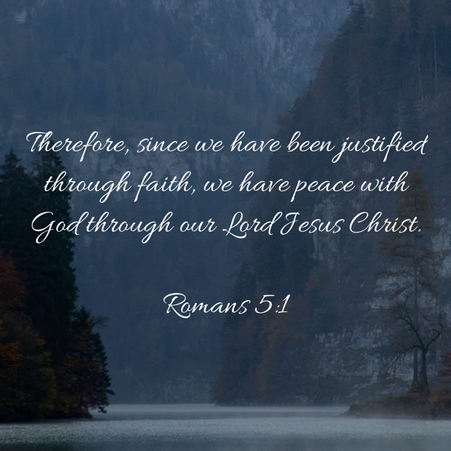



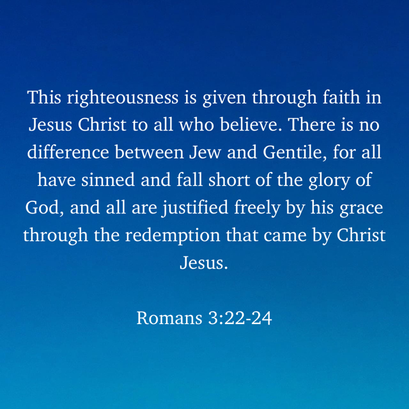

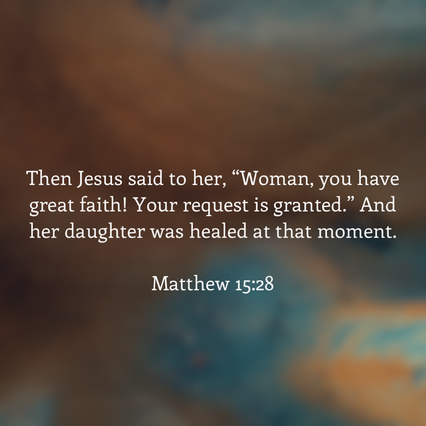





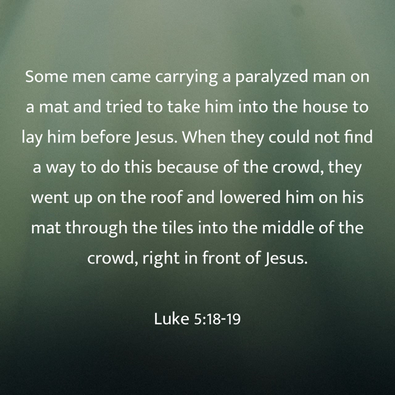


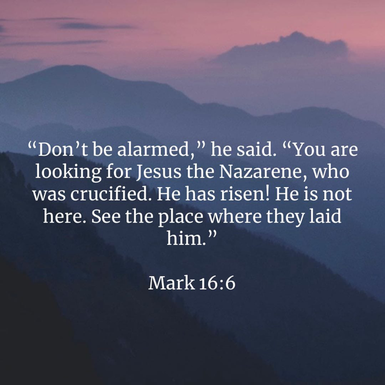
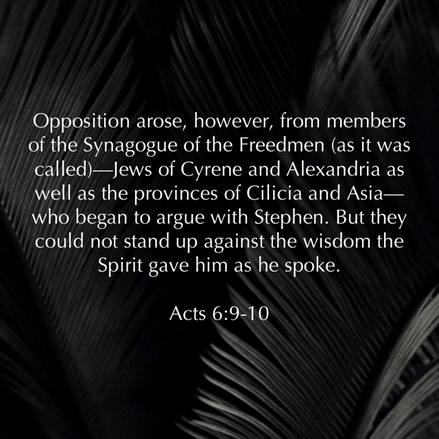

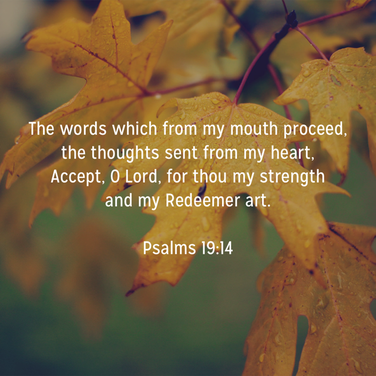


 RSS Feed
RSS Feed